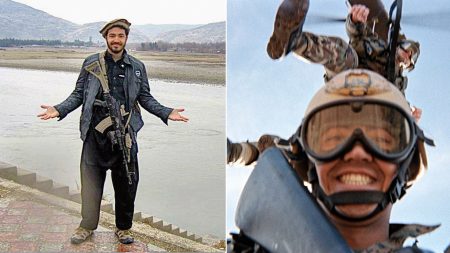Israel’s Strike in Doha: Revenge, Frustration and Strategic Calculations
Behind the Decision: Motivations for Israel’s Controversial Operation in Qatar’s Capital
In a bold and controversial move that has sent shockwaves through diplomatic circles across the Middle East, Israel carried out a targeted strike in Doha, Qatar. According to multiple Israeli officials and security analysts speaking on condition of anonymity, the operation was significantly motivated by a desire for revenge following the devastating Hamas-led attack on Israel in 2023, coupled with mounting frustration over stalled ceasefire negotiations in Gaza. This operation marks a significant escalation in Israel’s approach to confronting its adversaries beyond its immediate borders and raises serious questions about the future of regional stability and peace efforts.
The decision to strike in Doha, a major diplomatic hub that has positioned itself as a mediator in the Israel-Hamas conflict, represents a dramatic shift in Israel’s operational boundaries. “This was not simply a tactical military decision,” explained a former Israeli intelligence officer with knowledge of the planning process. “There was a clear emotional component driving the operation—a sense that those responsible for orchestrating attacks against Israeli civilians should not feel safe anywhere in the world.” The officer emphasized that while strategic considerations were presented to justify the strike, the timing and target selection reflected what many in Israel’s security establishment view as necessary retribution for the 2023 attack, which resulted in the highest civilian death toll in Israel since its founding and continues to haunt the national consciousness.
Gaza Negotiations at Breaking Point: How Diplomatic Failures Pushed Israel Toward Military Action
The stagnation of Gaza ceasefire negotiations has created a pressure cooker atmosphere within Israeli decision-making circles. For months, Qatar has hosted indirect talks between Israeli officials and Hamas representatives, with American and Egyptian mediators attempting to broker an agreement that would include the release of hostages taken during the 2023 attack and establish a sustainable ceasefire. However, these negotiations have repeatedly hit roadblocks, with both sides accusing the other of intransigence and bad faith. “There was a growing sentiment within the security cabinet that Hamas was deliberately dragging out talks while reorganizing its capabilities,” said Dr. Maya Hoffman, a researcher at the Institute for National Security Studies in Tel Aviv. “The decision to strike in Doha sends a message that Israel’s patience has limits and that the diplomatic track is not yielding results at an acceptable pace.”
The timing of the operation coincides with what many observers describe as a particularly frustrating impasse in negotiations. According to sources close to the mediation efforts, Israeli representatives had recently presented what they characterized as significant concessions regarding prisoner exchanges and humanitarian access to Gaza, only to face what they perceived as new demands from Hamas. “There was a sense that the talks were going in circles,” noted a Western diplomat familiar with the negotiations. “Israeli officials increasingly believed they were being used as part of a delaying strategy rather than engaging in genuine progress toward a resolution.” This perception contributed to a hardening of positions within the Israeli government and provided justification for those advocating a more aggressive approach to breaking the deadlock.
Regional Implications: How the Doha Strike Reshapes Middle East Diplomacy and Security
The decision to conduct an operation in Doha carries profound implications for regional dynamics and Qatar’s role as a mediator. Qatar, which hosts both a major U.S. military base and maintains relations with various actors including Hamas political leadership, has walked a delicate diplomatic tightrope for years. By carrying out a strike within Qatari territory, Israel has effectively challenged this balancing act and potentially undermined Qatar’s credibility as a neutral arbiter. “This is a calculated risk,” explained Dr. Ibrahim Al-Marashi, a Middle East security expert. “Israel is signaling that it prioritizes direct action against perceived threats over preserving the diplomatic architecture that Qatar has built. The question now is whether Qatar will continue its mediation efforts or whether this represents a breaking point in its willingness to facilitate talks.”
The operation also represents a significant test for broader regional alignments, particularly the Abraham Accords and normalization efforts between Israel and Arab states. Countries like the United Arab Emirates, Bahrain, and Morocco, which have established diplomatic relations with Israel, now face domestic pressure to respond to what many in the Arab world view as a violation of sovereignty and an escalation of conflict. “The strike in Doha forces every regional actor to recalculate their position,” said Ambassador James Cunningham, former U.S. diplomat with extensive Middle East experience. “For states that have invested in normalization with Israel, this creates a tension between their strategic interests in those relationships and their need to demonstrate solidarity with Qatar and respond to public opinion that largely opposes Israeli military actions outside its borders.”
The Human Cost: Balancing Security Objectives Against Civilian Impact and International Law
While Israeli officials have defended the operation as a precisely targeted strike against individuals directly responsible for planning attacks against Israel, questions remain about the human cost and legal justification for such actions. International legal experts have raised concerns about the operation’s compliance with principles of sovereignty and proportionality. “Even targeted strikes in foreign territories raise fundamental questions under international law,” explained Professor Sarah Weissmann of Georgetown University’s Law Center. “The legal justification typically rests on self-defense arguments, but these become more tenuous when operations occur far from active conflict zones and in territories of states not directly engaged in hostilities.”
The human dimension extends beyond the immediate targets to include potential civilian casualties, psychological impact on local populations, and the effect on expatriate communities in Qatar, including thousands of Western nationals. Humanitarian organizations operating in the region have expressed concern that the strike could complicate their ability to deliver aid to Gaza by further politicizing humanitarian channels that run through Qatar. “When diplomatic spaces become theaters of operation, it creates a chilling effect on humanitarian coordination,” noted the regional director of a major international NGO. “People who were working on facilitating aid deliveries or negotiating medical evacuations now worry about being perceived as legitimate targets in an expanding conflict.”
Looking Forward: Crisis Management, Escalation Risks, and Pathways to De-escalation
In the aftermath of the Doha strike, attention now turns to managing potential escalation and identifying possible pathways back to negotiation. Israeli security officials acknowledge they anticipated significant diplomatic blowback but calculated that the benefits outweighed the costs. “This was not a decision taken lightly,” said a senior defense ministry official who requested anonymity to discuss sensitive matters. “There was extensive debate about potential responses from Qatar, Iran, and other regional actors. Contingency plans are in place for various scenarios, including increased threats to Israeli interests abroad and potential cyberattacks.”
The international community, particularly the United States and European Union, now faces the challenge of preventing further escalation while salvaging some framework for continued dialogue on Gaza. Diplomatic sources indicate that intensive behind-the-scenes efforts are underway to establish guardrails that would prevent a complete collapse of the regional security architecture. “The immediate priority is preventing a cycle of retaliation and counter-retaliation,” explained a European diplomat engaged in regional consultations. “Beyond that, there needs to be a serious conversation about restoring credible mediation mechanisms that both sides can trust.” As regional tensions simmer and global powers scramble to contain the fallout, the Doha strike stands as a watershed moment that reflects both Israel’s determination to pursue perceived threats wherever they exist and the fragility of diplomatic efforts to resolve the underlying conflicts that continue to destabilize the Middle East.








